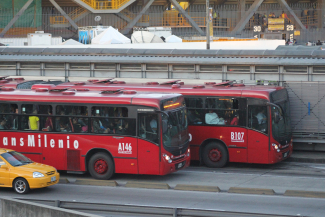FILTER
Displaying 101 - 110 of 291 publications
Abstract Globally, small-scale gold mining (SSGM) is an important economic option for many rural poor. It involves local uses of shared resources, like common-pool contexts for which self-governance…
| Peer Reviewed | ColombiaAbstract Shrimp is not only one of the world’s most valuable aquaculture species, but also a species that encounter high economic losses due to diseases. Diseases are sufficiently important to…
| Peer Reviewed | ColombiaAbstract Increasing demand for tropical hardwood and logging bans for natural teak forests have led to expanding teak plantations. Forest growth factors, briefly summarized in this chapter, may guide…
| Book Chapter | ColombiaAbstract Overfishing has become a major global issue that endangers ecosystems and the livelihoods of millions of people. Weak enforcement and illicit fishing behaviors limit the effectiveness of…
| Peer Reviewed | ColombiaAbstract SDG 7, “affordable and clean energy,” is a major challenge for developing countries such as Colombia, where there has been a push to increase coverage with very high costs. This phenomenon…
| Discussion Paper | ColombiaAbstract It has been widely recognized that human life and welfare depend on ecological systems. Although forests provide an important range of ecosystem services, they are heavily threatened by…
| Peer Reviewed | ColombiaAbstract The increasing frequency of extreme events, exogenous and endogenous, poses challenges for our societies. The current pandemic is a case in point; but "once-in-a-century" weather events are…
| Peer Reviewed | ColombiaAbstract Buildings contribute to about 40% of direct and indirect greenhouse gas emissions and more than a third of energy consumption globally. Sustainable building standards and efficiency standards…
| Peer Reviewed | ColombiaEconomists argue that carbon taxation (and more generally carbon pricing) is the single most powerful way to combat climate change. Since this is so controversial, we need to explain it better, and to…
| Peer Reviewed | Colombia, SwedenAbstract The changes in public transport ridership can be quantified as fare elasticities that are useful inputs to inform planning and policymaking, particularly for Bus Rapid Transit (BRT) systems…
| Peer Reviewed | Colombia
